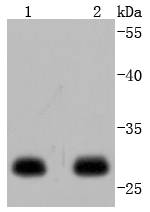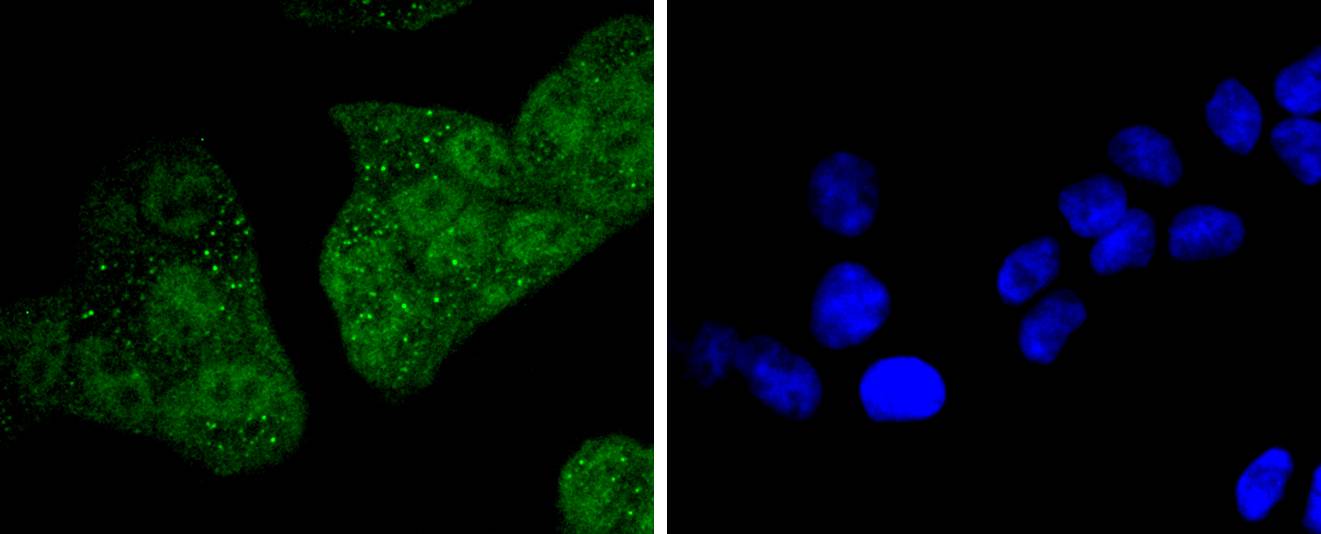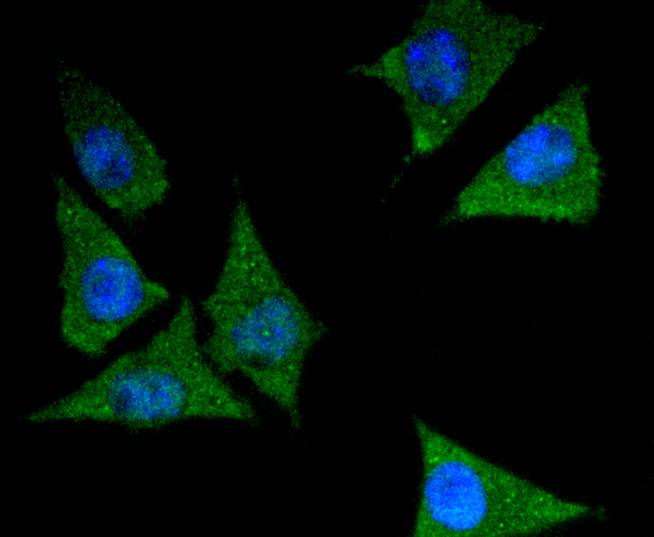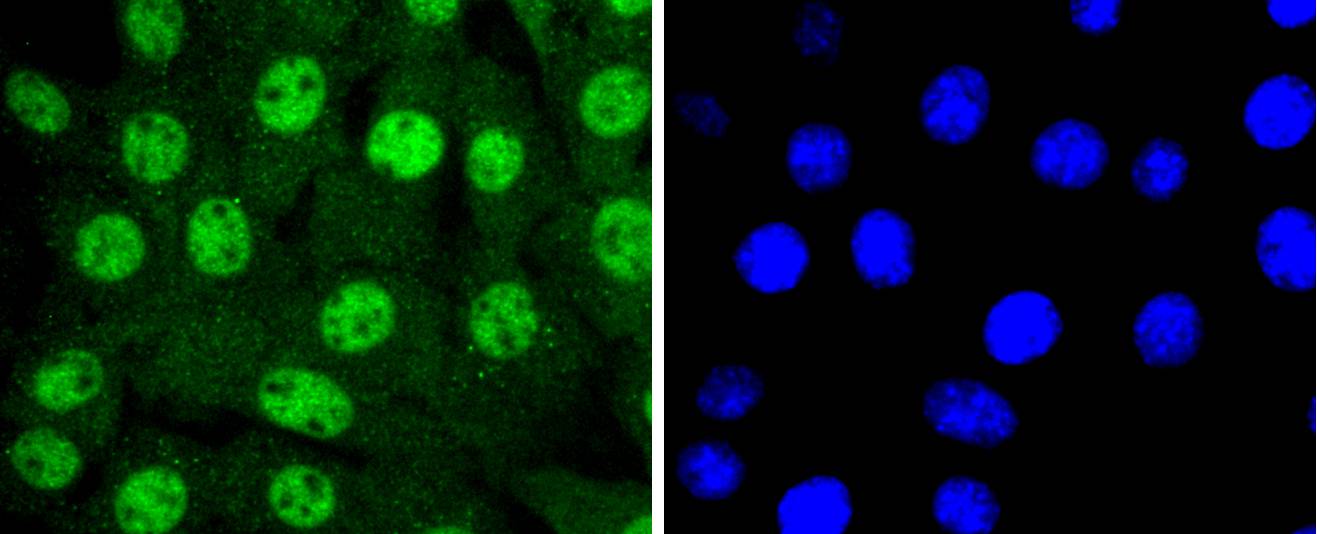Product Detail
Product Name14-3-3 epsilon Rabbit mAb
Clone No.JJ08-40
Host SpeciesRecombinant Rabbit
Clonality Monoclonal
PurificationProA affinity purified
ApplicationsWB, ICC/IF, IHC, FC
Species ReactivityHu, Ms, Rt
Immunogen Descrecombinant protein
ConjugateUnconjugated
Other Names14 3 3 E antibody 14 3 3 epsilon antibody 14 3 3E antibody 14-3-3 protein epsilon antibody 14-3-3E antibody 1433E_HUMAN antibody Epididymis luminal protein 2 antibody FLJ45465 antibody FLJ53559 antibody HEL2 antibody KCIP 1 antibody KCIP1 antibody MDCR antibody MDS antibody Mitochondrial import stimulation factor L subunit antibody Protein kinase C inhibitor protein1 antibody Tyrosine 3 monooxygenase/tryptophan 5 monooxygenase activation protein, epsilon antibody Tyrosine 3 monooxygenase/tryptophan 5 monooxygenase activation protein, epsilon polypeptide antibody Tyrosine 3/tryptophan 5 monooxygenase activation protein epsilon polypeptide antibody YWHAE antibody
Accession NoSwiss-Prot#:P62258
Uniprot
P62258
Gene ID
7531;
Calculated MW29 kDa
Formulation1*TBS (pH7.4), 1%BSA, 40%Glycerol. Preservative: 0.05% Sodium Azide.
StorageStore at -20˚C
Application Details
WB: 1:1,000-1:2,000
IHC: 1:50-1:200
ICC: 1:50-1:200
FC: 1:10-1:100
Western blot analysis of 14-3-3 epsilon on different lysates using anti-14-3-3 epsilon antibody at 1/1,000 dilution. Positive control: Lane 1: SH-SY-5Y Lane 2: 293T
Immunohistochemical analysis of paraffin-embedded mouse placenta tissue using anti-14-3-3 epsilon antibody. Counter stained with hematoxylin.
Immunohistochemical analysis of paraffin-embedded human colon cancer tissue using anti-14-3-3 epsilon antibody. Counter stained with hematoxylin.
ICC staining 14-3-3 epsilon in Hela cells (green). The nuclear counter stain is DAPI (blue). Cells were fixed in paraformaldehyde, permeabilised with 0.25% Triton X100/PBS.
ICC staining 14-3-3 epsilon in SH-SY-5Y cells (green). The nuclear counter stain is DAPI (blue). Cells were fixed in paraformaldehyde, permeabilised with 0.25% Triton X100/PBS.
ICC staining 14-3-3 epsilon in NIH/3T3 cells (green). The nuclear counter stain is DAPI (blue). Cells were fixed in paraformaldehyde, permeabilised with 0.25% Triton X100/PBS.
Flow cytometric analysis of SH-SY-5Y cells with 14-3-3 epsilon antibody at 1/50 dilution (red) compared with an unlabelled control (cells without incubation with primary antibody; black). Alexa Fluor 488-conjugated goat anti rabbit IgG was used as the secondary antibody.
The 14-3-3 family of proteins plays a key regulatory role in signal transduction, checkpoint control, apoptotic and nutrient-sensing pathways. 14-3-3 proteins are highly conserved and ubiquitously expressed. There are at least seven isoforms, β, γ, ε, , ζ, and η that have been identified in mammals. The 14-3-3 epsilon, a subtype of the 14-3-3 family of proteins, was thought to be brain and neuron-specific. It has been shown to interact with CDC25 phosphatases, RAF1 and IRS1 proteins, suggesting its role in diverse biochemical activities related to signal transduction, such as cell division and regulation of insulin sensitivity. It has also been implicated in the pathogenesis of small cell lung cancer.
If you have published an article using product 49216, please notify us so that we can cite your literature.









 Yes
Yes



